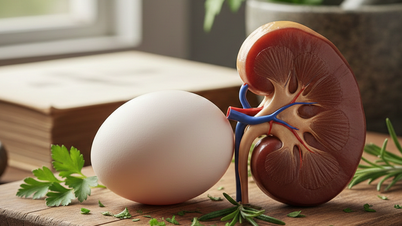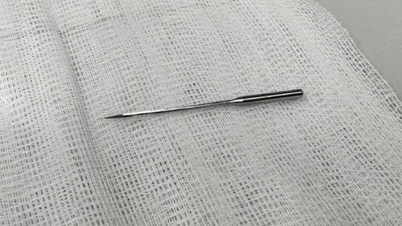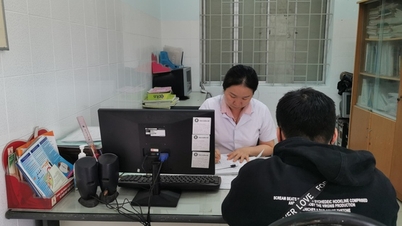Zinc plays a very important biological role in human health, even though it only accounts for a few millionths of the body's dry weight. Scientists have discovered many serious diseases related to zinc deficiency or excess in the human body, especially in children.
Symptoms of zinc deficiency in children
Most cases of zinc deficiency in children occur when zinc intake is insufficient or absorption is poor, increasing zinc loss from the body (acute diarrhea, frequent vomiting)... Common symptoms in children with zinc deficiency are:
- Children with slow growth, rickets, malnutrition
- Children feel like they don't eat, have a poor appetite or eat less, breastfeed less, don't eat meat or fish, have indigestion, and have mild constipation.
- Children with hair loss or brittle hair
- Prolonged diarrhea, skin and eye damage
- Slow maturation of reproductive organs
- Children vomit for unknown reasons
- Children have slow thinking and poor memory
- Children often have difficulty sleeping at night, waking up many times. The disease can even weaken brain activity, cause slow dreaming, paranoia, speech ataxia, taste and smell disorders, slow psychomotor development, disability, cerebral palsy,...
- Recurrent respiratory tract infections (nasopharyngitis, recurrent bronchitis), gastrointestinal infections, dermatitis, burns, pustules, and mucosal inflammation.
- Children have slow healing wounds, allergies, brittle, weak nails.
- Zinc deficiency not only affects the physical but also negatively impacts the mental, making children irritable. Because zinc helps transport calcium into the brain because calcium is one of the important substances that helps stabilize the nervous system.

Zinc (Zn) plays a very important role in the development of children's height and physique and in strengthening their immune system. Illustrative photo
How to effectively supplement zinc for children
According to the recommendations of the World Health Organization (WHO), the amount of zinc supplement needed for children depends on age, specifically:
Children under 3 months need 3mg of zinc per day, children from 5 months to 12 months old need 5-8 mg/day, children from 1 year to 10 years old need about 10-15 mg/day for optimal height and physical development.
For children under 6 months old, the best and most easily absorbed source of zinc is breast milk. However, the amount of zinc in breast milk will gradually decrease over time. In the first 3 months, the amount of zinc in breast milk is about 2 - 3 mg / liter, and in the next 3 months, the amount of zinc decreases to about 0.9 mg / liter. Therefore, mothers need to maintain the amount of zinc in milk as well as provide zinc for the child's future development by eating foods that are considered rich in zinc such as freshwater shrimp, eel, oysters, clams, pig liver, milk, beef, etc.
For older children, mothers can supplement zinc through food, for example, 50g of pork loin contains about 2mg of zinc, 250g of yogurt contains 1.6mg of zinc, and half a chicken breast contains 1mg of zinc...
In addition, to help your baby absorb zinc best, mothers should also supplement vitamin C for their children from fresh fruits rich in vitamin C such as oranges, lemons, tangerines, grapefruits, etc.
In addition to supplementing vitamin D and calcium minerals, parents should not forget to supplement zinc for their children. This is a meaningful thing to do to help children develop optimally in height, physique and have good health to help children prevent diseases effectively.
Source: https://suckhoedoisong.vn/bo-sung-kem-dung-cach-giup-tre-phat-trien-cao-lon-khoe-manh-phong-benh-hieu-qua-169251126183554159.htm



![[Photo] VinUni students' emotions are sublimated with "Homeland in the Heart: The Concert Film"](/_next/image?url=https%3A%2F%2Fvphoto.vietnam.vn%2Fthumb%2F1200x675%2Fvietnam%2Fresource%2FIMAGE%2F2025%2F11%2F26%2F1764174931822_10-3878-jpg.webp&w=3840&q=75)



![[Photo] Close-up of heavy damage at the school located on the banks of the Ban Thach River](/_next/image?url=https%3A%2F%2Fvphoto.vietnam.vn%2Fthumb%2F1200x675%2Fvietnam%2Fresource%2FIMAGE%2F2025%2F11%2F26%2F1764152130492_ndo_bl_img-8188-8805-jpg.webp&w=3840&q=75)

































































![[Photo] Opening of the 28th Session of the Hanoi People's Council](https://vphoto.vietnam.vn/thumb/402x226/vietnam/resource/IMAGE/2025/11/26/1764155991133_image.jpeg)






























Comment (0)